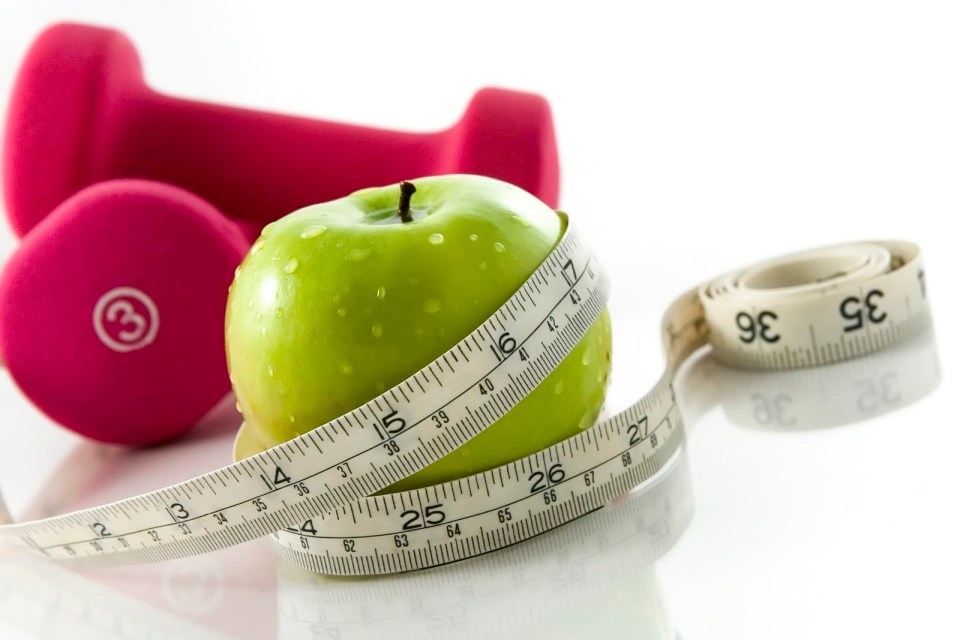We are perpetually given mixed messages in the media. One moment we are being seduced by food ads promising bliss at the end of tis bite or that fork…the next moment we are told that the only way we will find happiness is if we are thin (or lately, the word used is “fit”) so we better put that damn fork back down.
Highly sensitive people tend to be highly self-reflective…which means we have some tools at our disposal to untangle media advertisements and critically analyze them. BUT…we are still also emotionally aware of how others see us. We are sensitive to criticism and are more likely to take it to heart than might the average person.
Highly sensitive people are also more likely to say “yes” to things they may or may not have the energy for. So to refuel, food can become a useful antidote to anxiety, loneliness, and discomfort. Reducing intake of food, therefore, can leave a highly sensitive person feeling like the one tool that helps them cope with an otherwise highly stimulating and overtaxing world is being taken away. But the uncomfortable weight gain (and its accompanying criticism) can make them feel isolated and frustrated.
If you are a highly sensitive person, and you are interested in weight loss…here are some tips to consider before you begin.
- Reframe the process from a conversation about weight loss into a conversation about gain:: Often the conversation around weight loss centers around deprivation. What can’t I eat? Where can’t I go out? What do I need to abstain from? Just look at the title of this article. It’s about weight loss. For highly sensitive people…the way we speak about a topic, conceptually, can influence how we experience it tangibly. So…Instead of thinking about what you are losing…instead, think about what you are letting go. You aren’t LOSING weight. You’re letting go of weight you simply don’t have any need for. When you clean out your closet and get rid of clothes you don’t wear anymore…are you losing them? No. You’re just making room. You are gaining space. When you think about reducing your weight, what is it that you might gain in the process?
- Be really clear about what you’re doing this all for. In a world where thin is in it’s all too easy to assume that weight loss will be a high-speed railway to health, passion, and happiness. But that isn’t precisely true. Behaviors associated with health and longevity include eating fruits and vegetables, exercise, getting enough sleep, and having social support. Behaviors associated with happiness and love include self-reflection, meditation, and random acts of kindness. Those same behaviors are certainly correlated with a lower weight (people who exercise, sleep, eat well and stay connected with others who do the same are likely to have a lower BMI). But it’s not the weight loss, itself, that makes all that happen. IF, however, your weight is hindering your ability to engage in those behaviors…THAT might be worth looking into. If, for example, exercise is painful because your weight is stressing your joints, making a point to reduce your weight make sense. If your weight is aggravating your system and making it hard to sleep (sleep apnea) then that certainly makes taking steps toward weight management worthwhile. But losing weight because our culture says thin is better isn’t a good reason. Happiness and health comes with taking care of yourself. Not punishing yourself. So ask yourself…what are you doing it for?
- Don’t just track your food…track your experience of the food. Highly sensitive people tend to process things. Elizabeth Gilbert writes “I know that an unexamined life isn’t worth living…but could I at least have an unexamined lunch?” I am here to say…why not examine it? What we eat, how much, when, and how tells us a lot about ourselves. Food tracking is, obviously, known to be helpful with weight management. But highly sensitive people often become perplexed by it. What’s the point? What a trivial thing to track… That’s because it’s not deep enough. It just scratches the surface. If you tend to process things more than the average person, use that to you advantage. Write down what you eat, what time of day it was, how you were feeling before you sat down to eat, and how you felt afterward. Here is an example of how that might look:
| Meal | Time | How did you feel before? | How did you feel after? | Scale of 1 – 10 (10 being full) how full are you after leaving the table. | Where did you eat and who with? |
- In every meal and snack…try to find a way to eat something that has some protein along with something that has some fiber. Doing so helps balance your blood sugar and leaves you feeling satiated and energized. Highly sensitive people tend to do exceptionally well when they have managed their blood sugar. Skipping meals, conversely, seems to be exceptionally uncomfortable for them. Ever heard of the word “hangry”? If not, you probably don’t know any highly sensitive folks.
Examples include:
- Apple and almond butter
- Chicken and vegetables
- Brown rice, beans and vegetables stir-fry
- Berries and unsweetened yogurt
- Fruit, veggie, and yogurt smoothie
- Vegetable scramble
- Drink plenty of water. Highly sensitive people aren’t super special in this regard. Everyone should drink water. BUT highly sensitive people usually feel the nuances of dehydration more intensely. HSP’s notice that their hands feel dry. They will notice a more foggy brain. They will notice a dip in their energy. Often they mistake these sensations for hunger. This, again, can actually be one of the benefits of being an HSP. Since we are capable of noting the subtle changes that happen as our body undergoes different stages…we are more capable of correcting our behaviors to optimize our health more quickly.
- Make sure you have support and accountability. Highly sensitive people tend to be conscientious. This can work against them when first starting out on a weight loss program. Why? Because they are often more likely to take care of the needs of others around them before taking care of themselves. They will finish the project first, get the kids to bed first, take care of their partners first…you get the idea. Why? Because they don’t want to disappoint others. To use this seeming liability to your advantage, it’s best to have an accountability partner. You can do that by hiring a physical trainer or coach. You can also enlist the help of a friend or family member. Arrange workouts with others. Have someone checking on your progress. Everyone does better when they have accountability systems in place. But highly sensitive people are particularly likely to do well.
- Find ways of moving your body that don’t feel like more work. Our bodies were designed to move. But super intense workouts that leave you crying on the floor? They don’t tend to be particularly helpful for highly sensitive individuals. It’s not that they are weaklings that can’t do it. It’s just that your average HSP won’t find it as enjoyable. And you know what? That’s FINE. The whole “no pain no gain” moto is dumb. Find ways to move that bring you joy. Highly sensitive people are capable of being extremely body-aware. This, again, is the upside to having a more sensitive nervous system. If you can find a movement modality that fits your personality and temperament, it can not only help with weight management, but even MORE importantly…with overall mental and physical well being. Examples of exercises that tend to be particularly well suited for highly sensitive individuals include: yoga, swimming, gardening, and dance. Basically…it’s anything where movement isn’t used as punishment.
- Learn the power of the word “NO.” Weight loss, at its most basic level requires calorie reduction and exercise. But in order to reduce calories and still feel satiated, we are best served eating a whole-food diet that is balanced and nutrient dense, In other words, we do better eating 1200 calories of chicken, brown rice, and vegetables than we do eating 1200 calories of cookies and crackers. The challenge with both of those isn’t that exercise doesn’t feel good or that healthy food tastes bad. It’s more that healthy food takes time. It requires that we shop, chop, cook, and carry. Exercise, too, requires that we schedule time for it. In order to have the space to do each of those things, we have to be willing to say no to something else. Maybe it’s saying no to extra work. Or no to that added social event. Maybe it isn’t even that you need to say no to have more time, but to have more energy. Whatever the case…if you want to lose weight, that’s going to require that you schedule it in your calendar. Say no to something to allow room to say yes to yourself.
- Get plenty of sleep. Sleep deprivation dampens our brain’s ability to make decisions which require us to exercise a bit of willpower. When well-rested, it doesn’t seem as daunting to turn down a cake here or a vanilla latte there. Have you ever noticed that you often do better with “eating healthy” at the start of the day…and then worse by the end of it? That’s because that willpower muscle has been strained and used all day. Add some sleep debt on top of that and you’re left with only a fraction of what you need to stay the course. Also, when sleep deprived, the body produces more hunger hormones. The body needs ENERGY. So it will signal us to eat more when we didn’t fuel up with sleep. A highly sensitive person is even more impacted by sleep debt. Because our brains are built to process things more deeply, we need sleep that much more. Diet and exercise are important…but damn-near impossible to do when exhausted.
10. Remember that health comes at every size. If you are looking to lose some weight, be very careful that you aren’t falling prey to external cues telling you health only comes in one size (size 3). As mentioned earlier…health and longevity have more to do with behaviors than they have to do with our weight. This isn’t to say that YOUR body will be healthy no matter its size. Rather…it means that we all have our own, individual, setpoint weight. You will know you are at your setpoint weight when you feel energetic, vital, and strong (not willowy and in perpetual starvation). Strive to be your healthiest self. Not your thinnest self. If you engage in behaviors associated with weight loss (exercise and healthy eating) and the weight doesn’t come off…but your biometric markers improve, your energy rises, and your sense of comfort with your own body improves…THAT is the real track to health.

